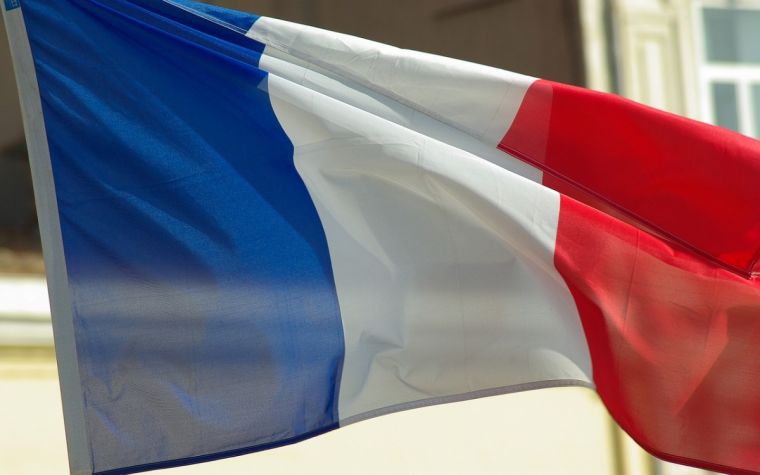Bastille Day: Some reflections on the revolution in France

As President Trump brings to an end his European visit, he spent Bastille Day with new French President Emmanuel Macron. For an iconoclastic figure like Trump, maybe this was the most appropriate day to be in the French republic.
The storming of the Bastille, arguably the most iconic event of the French Revolution, is commemorated each year on this date. It's the equivalent of July 4 in the USA and a combination of Guy Fawkes Night and the various nations' patron saints' days in the UK.
A national holiday, yes, but more importantly it's the commemoration of a key component of the national myth of France. Liberté, égalité, fraternité, the national motto of France, was coined during the revolution and eventually came to symbolise the sanitised version of what the revolution represented. Freedom, equality and brotherhood are laudable aims and something each society should be striving for. But they weren't exactly the overarching values of the revolution.
Deep inequality in French society was the backdrop to the events of 1789. The aristocracy (and some clergy) class seemed largely indifferent to the increasingly deleterious affect that high taxes and failing crops had on the majority of the French people. The conditions for revolution were rife at the bottom of society. Meanwhile at the top, the Enlightenment was taking hold with various radical ideas promoted by the 'Philosophes'. Voltaire, Rousseau and others were championing a disparate range of ideas of progress which set the intellectual tone for the revolution.
After the initial clashes, including the storming of the Bastille in 1789, France entered a period of unrest which culminated in the execution of the king, Louis XVI, in 1793. Having abolished feudalism, monarchy and other vestiges of the heavily stratified society, the revolution hardened and the same year saw the start of the 'Terror'. Led by Maximilian Robespierre and the Jacobins, thousands of people were killed in the name of the revolution.
Though Robespierre was himself killed in 1794, the unrest carried on, culminating in the eventual rise to power of Napoleon Bonaparte in 1799, 10 years after the revolution had begun.
France had thrown off the reign of a repressive monarchical and aristocratic symptom, only to welcome in the rule of Napoleon, who eventually declared himself Emperor. Tens of thousands dies in the Vendee Uprising and other attempts to reverse the revolution, hundreds of thousands in the subsequent revolutionary wars.
Clergy were attacked and the Church was reviled by extreme revolutionaries. A period of 'de-Christianisation' began with Catholicism replaced as the official state religion by the 'cult of reason' and the 'cult of the supreme being'. Though these were short lived, the Church had been dealt a huge blow. While there were positive aspects of the revolution such as the abolition of slavery, the huge death toll and the repressive nature of the reign of terror mean its legacy is scarred, perhaps fatally so.
What does all of this mean?
On the one hand, Thomas Paine lauded the revolution, writing in his Rights Of Man of ts breaking of the principle of hereditary power. Edmund Burke, in his Reflections on the Revolution in France argued the opposite – that the revolution had gone too far and risked the complete destabilisation of society.
While both arguments had merits, those in the fledgling United States and in the UK were watching. Broadly speaking, the US followed Paine (he was acquainted with Franklin and Jefferson) while the UK followed Burke.
The US now has a secular system, which leans heavily on the idea of individual rights and the separation of Church and state. Arguably both societies have leaned too heavily on these Enlightenment ideals. France's hard-line secularism (known as laïcité) precludes any link between Church and state. It leads to illiberal policies such as the ban on Muslim women wearing the veil.
While the USA isn't quite as far down that road, its over-reliance on rights-based discourse has been a major driver in its inability to tackle mass shootings, for example (as I argued here).
On the other hand, the UK, which had its own relatively bloodless revolution 100 years before, gradually evolved as a society. This meant continued rule by a monarchy, but rather than a violent upheaval, there were slow improvements to the conditions of the public. In 1832, the franchise was extended, and this continued until all men and women over 18 were enfranchised in 1928. Unlike the US and France, the UK has a state Church and a monarchy, as well as an unwritten constitution.
The ideological battle over the French revolution goes on, especially today. Was it a moment of empowerment for ordinary people? Or does it prove violent revolutions will almost always fail to create good societies?
I wish everyone marking Bastille Day well – and can't think of a better way than settling down to read some Paine as well as Burke.











